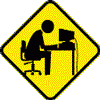I knew the System File Checker but it is only for Windows system files. I want to check the health of all my data files. Disk checking, as far as I know, has nothing to do with file corruption. The drive can be healthy even if some files have been corrupt unrelated to drive failure reasons.
I tried to search on the net but couldn't find any.
Any method or workaround which could check for file corruption & errors, even if the check is not comprehensive or faultless, is much appreciated. Thank you.
2. I would like to ask whether there is any good program which could:
(A) *really* wipe specific files and folders irrecoverably
(B) *really* wipe the data of whole drive/disk irrecoverably
I hear that some programs claim it does but actually not (it's still there when you use the recovery program) so I want something which is really working, be it free or paid. Thank you.
Edited by Master T, 18 July 2009 - 09:25 AM.















 Sign In
Sign In Create Account
Create Account

